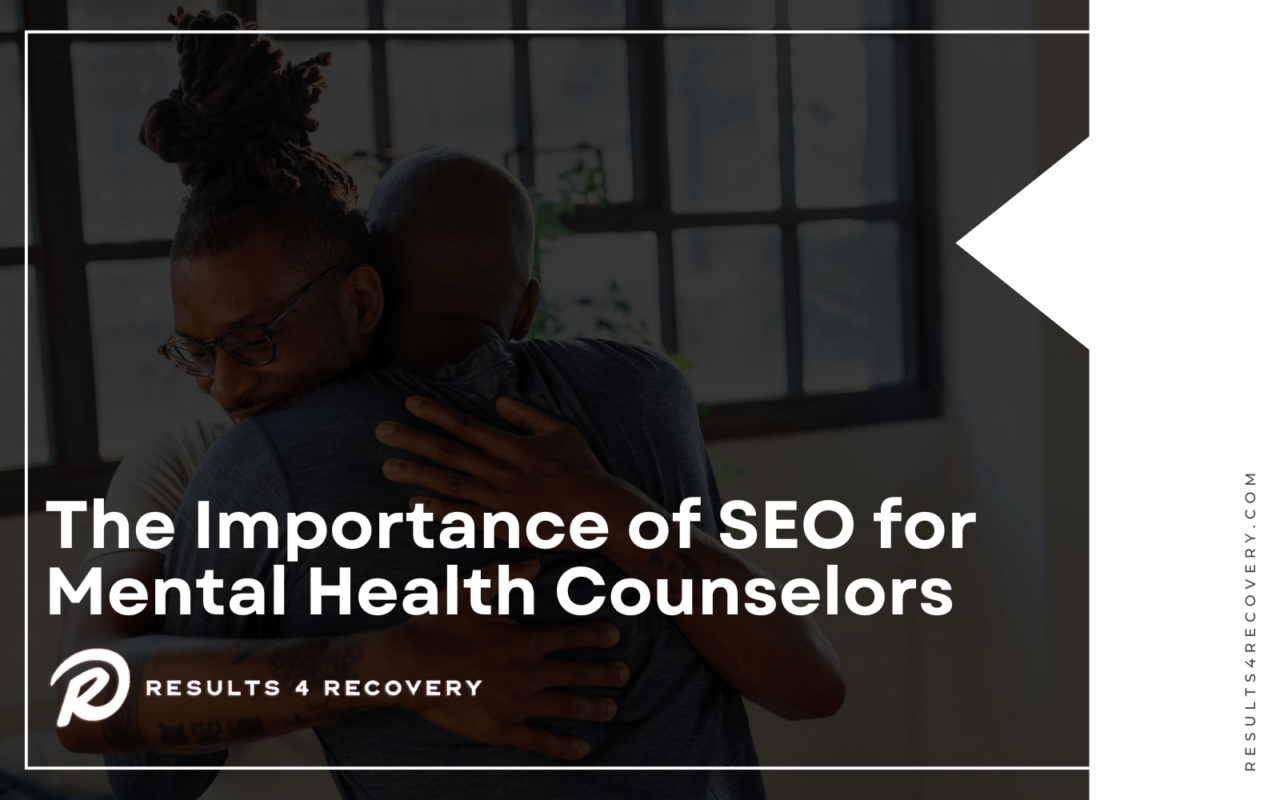Boost Your Counseling Practice with SEO for Mental Health Counselors
In a world increasingly driven by digital connections, having a strong online presence is more important than ever, particularly for professionals in the mental health field. Imagine the ability to reach potential clients who are actively searching for help, navigating through the complexities of their mental health challenges. This is the transformative power of search engine optimization SEO for mental health counselors. Whether you’re running a private practice or part of a larger organization, understanding the nuances of SEO can open doors to new opportunities and help you stand out in a crowded marketplace. By effectively utilizing SEO for mental health counselors strategies, you can enhance your visibility on search engines, making it easier for those in need of support to find your services. From optimizing your website’s content with relevant keywords to creating informative blog posts that address common mental health concerns, every step you take in SEO can significantly impact your outreach.
What is SEO?
Search engine optimization, or SEO for mental health counselors, is both an art and a science focused on enhancing the visibility of your website in search engine results. It involves a variety of strategies and techniques designed to improve your site’s ranking when users enter specific queries. For instance, when someone searches for therapy services using targeted keywords such as “cognitive behavioral therapy” or “relationship counseling,” effective SEO for mental health counselors practices ensure that your website appears prominently in the search results. This visibility is crucial in today’s digital landscape, as it leads to higher traffic, more clicks, and, ultimately, a greater likelihood of potential clients discovering and reaching out for your services. Additionally, by optimizing your content, improving site speed, and ensuring mobile-friendliness, you create a better user experience, which can further enhance your ranking in search results. In essence, a robust SEO strategy not only helps connect you with clients in need of therapy but also establishes your online presence as a trusted resource in your field.
Why is SEO Important for Mental Health Counselors?
According to the Mental Health Counselors Association, an astonishing 97% of individuals seek mental health information online, demonstrating a clear shift in how people access support and resources. Of these, a significant 87% rely on search engines as their primary source of information, underscoring the critical role of digital platforms in mental health awareness. This statistic alone highlights the immense potential for mental health professionals to reach out to those in need by employing effective SEO strategies that can enhance visibility and connect with a vast pool of potential clients.
As the popularity of teletherapy and remote counseling services continues to grow, having a robust online presence has become not just beneficial, but absolutely essential for practitioners. This ensures that they can effectively engage with clients, provide valuable resources, and establish trust in a digital landscape where many seek immediate answers to their mental health concerns. By optimizing their online platforms, counselors can make a meaningful impact on those who are searching for help, ultimately fostering a supportive community for mental health awareness and care.
Finding the Right Keywords
Keyword research is the foundation of any successful SEO strategy, serving as the first step in connecting with your target audience. It involves delving deep into understanding what potential clients are typing into search engines when seeking mental health services. This understanding is crucial because it allows you to tailor your content and services to meet the specific needs of those searching for help.
Tools like Google’s Keyword Planner and Moz’s Keyword Explorer can provide invaluable insights into search volume, competition levels, and related keywords that can enhance your strategy. For instance, when you analyze keywords, you can discover trends that indicate what people are searching for most frequently. Consider phrases such as “anxiety therapy near me” or “best online therapy for depression.” These specific terms not only reflect the needs and concerns of potential clients but also help you attract the right audience by optimizing your website and content to rank higher in search results. By prioritizing keyword research in your SEO efforts, you set a strong foundation for reaching individuals who are actively looking for mental health support.
Thinking Like Your Clients
To make your keyword research truly effective, start by putting yourself in the shoes of someone seeking mental health services. Consider the various challenges they might be facing and the emotional state they are in. What specific words or phrases would they use to describe their feelings, struggles, or the type of help they are looking for? Brainstorm terms related to their experiences, such as “anxiety support,” “therapy for depression,” or “coping strategies.”
By aligning your website content with these carefully chosen keywords, you increase the likelihood of connecting with individuals who are actively searching for help and support. This not only enhances your visibility in search engines but also ensures that your content resonates with those in need, providing them with the resources and guidance they are looking for. Ultimately, a thoughtful approach to keyword research can make a significant difference in reaching and assisting those who require mental health services.

Optimizing Your Website
Once you’ve identified relevant keywords, it’s time to optimize your website’s on-page elements to enhance its visibility in search engine results. This process involves strategically incorporating keywords into key areas such as page titles, headers, and meta descriptions, which are essential for informing both search engines and users about the content of your pages.
When crafting your page titles, ensure that they accurately reflect the content while also enticing users to click through. Similarly, headers should not only include keywords but also provide a clear structure to your content, making it easier for readers to navigate. Meta descriptions, although not a direct ranking factor, play a crucial role in influencing click-through rates by giving users a snapshot of what to expect.
However, it’s vital to avoid the temptation of keyword stuffing—overloading your content with keywords in an unnatural way. This practice can lead to a poor user experience and may harm your website’s credibility, potentially causing search engines to penalize your site. Instead, focus on creating high-quality, engaging content that naturally incorporates your chosen keywords, ensuring a balance between optimization and readability.
Creating High-Quality Content
Content is king in SEO, and its importance cannot be overstated. By crafting high-quality and relevant content tailored to your audience’s needs, you not only engage and captivate your readers but also significantly improve your search engine ranking. Quality content encourages visitors to spend more time on your site, reducing bounce rates and signaling to search engines that your content is valuable.
Additionally, ensure that your images have descriptive alt tags, as this helps search engines understand the context of your visuals and can improve your visibility in image search results. Furthermore, focusing on site speed is crucial; a faster website enhances user satisfaction and can lead to higher conversion rates. Lastly, enhancing navigation is essential for creating a seamless user experience, allowing visitors to easily find the information they seek and encouraging them to explore more of what your site has to offer. In the competitive landscape of SEO, these elements work together to create a solid foundation for online success.
Building a Strong Backlink Profile
Off-page SEO encompasses a variety of actions taken outside your website that can significantly influence your search engine ranking. Among the many strategies utilized, one of the most crucial aspects is link building. This process involves acquiring backlinks from reputable and authoritative websites, which serves as a vote of confidence in your content. When search engines notice that other trustworthy sites are linking to yours, it signals that your website is credible and valuable. This not only helps enhance your site’s visibility in search results but also drives referral traffic, contributing to the overall authority and reputation of your brand in the digital landscape. Engaging in effective link-building strategies can lead to improved rankings, increased traffic, and a stronger online presence.
Leveraging Social Media
Social media is an incredibly powerful tool for enhancing your off-page SEO strategy. By consistently posting relevant and informative content on platforms like Facebook, Instagram, and LinkedIn, you can significantly increase traffic to your website. Engaging with potential clients through these channels not only helps in building brand awareness but also fosters meaningful relationships. Sharing valuable insights, industry news, and engaging visuals can attract a wider audience and encourage shares and interactions, further boosting your online presence and search engine rankings.
The Role of Online Reviews
Online reviews play a significant role in cementing your reputation in today’s digital landscape. They serve as a reflection of your business’s quality and customer satisfaction. Positive reviews not only attract potential clients searching for reliable services but also signal to search engines that your website is credible and trustworthy. This credibility can improve your search engine rankings, making it easier for new customers to find you. Moreover, high ratings and glowing testimonials can help differentiate you from competitors, fostering a sense of trust and encouraging more people to choose your offerings over others. In essence, cultivating a collection of positive online reviews is crucial for long-term success and growth.
Attracting Local Clients
For counselors offering in-person therapy services, local SEO is an invaluable tool that can significantly enhance their practice. It involves strategically targeting keywords that include location-specific terms, such as “anxiety therapy in New York City” or “couples counseling near me.” By optimizing for local SEO, you can improve your rankings on search engines, making it easier for potential clients in your area to find you. This approach not only increases your visibility within your community but also helps build trust and credibility, as clients are more likely to choose a therapist who is easily accessible and well-regarded in their locality. Furthermore, utilizing local SEO can lead to higher engagement rates, as people searching for nearby services are often ready to make appointments.
Claiming Your Google My Business Listing
A simple yet effective local SEO strategy is claiming your business listing on Google My Business. By doing so, you enhance your visibility in local search results, making it easier for potential clients in your area to discover your services. This free tool not only allows you to manage how your business appears on Google Maps and Search but also lets you provide essential information such as your hours of operation, contact details, and website link. Additionally, you can engage with customers by responding to reviews and posting updates, further attracting clients and building trust in your local community.
Adapting to Evolving Algorithms
One of the biggest challenges of SEO is the constant evolution of search engine algorithms, which can change frequently and without warning. These updates can significantly impact your website’s visibility and ranking. To stay ahead in this ever-changing landscape, it’s crucial to regularly monitor your website’s performance through analytics tools, as this helps you identify any trends or issues that may arise. Additionally, keeping up with industry news through blogs, forums, and webinars will help you stay informed about the latest best practices and algorithm updates. Finally, being ready to adapt your strategy in response to these changes will ensure that your SEO for mental health counselors efforts remain effective and that your site continues to attract organic traffic.
Conclusion
Investing in SEO for mental health counselors goes beyond simply boosting your online visibility; it’s fundamentally about connecting with individuals who are actively seeking help and support. In today’s digital age, many people turn to online searches to find mental health resources, which makes it essential for counselors to be easily discoverable. By mastering keyword research, you can identify the specific terms and phrases that potential clients are using to search for counseling services. Optimizing both on-page elements, such as website content and meta descriptions, and off-page elements, like backlinks and social media presence, is crucial for improving your search engine rankings. For more resources and insight contact us by clicking Results 4 Recovery and scheduling a consultation. Additionally, targeting local searches ensures that your practice appears in results when individuals seek nearby mental health services, making it easier for them to reach out for assistance. To truly excel, keep learning about new SEO techniques, adapting your strategies based on analytics, and striving to reach new heights with your online presence as a mental health counselor. Engaging with SEO effectively can significantly enhance your practice’s reach and impact, ultimately helping more individuals find the support they need.














